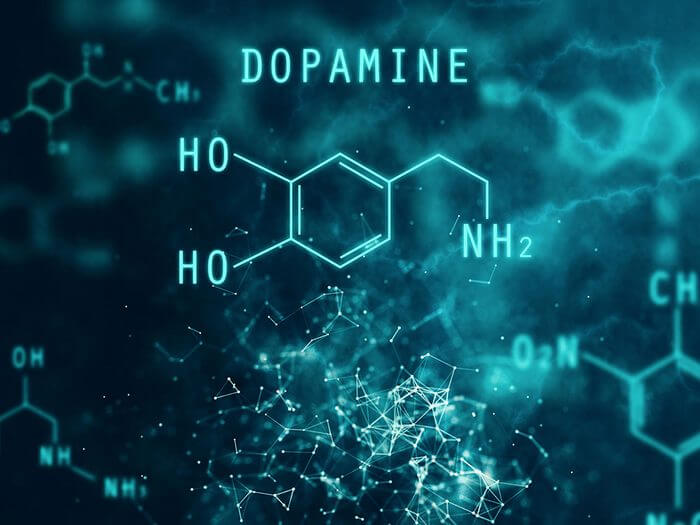Sugar is a staple in many people’s diets, but did you know that consuming too much sugar can have a profound impact on your brain and overall health? In this article, we will explore six shocking facts about the effects of high in sugar intake on the brain. From its impact on memory and learning to its connection with depression and anxiety, we will delve into the ways in which sugar transforms the brain. Whether you’re trying to reduce your sugar intake for health reasons or simply want to know more about the effects of sugar on the body, this article will provide you with the information you need to make informed decisions about your diet.
Canadian adults eat on average more than twice the daily allowance of 25g of added sugar prescribed by the World Health Organization. Eating foods high in sugar on a regular basis can increase the desire to eat them. And it must be remembered that all foods that are harmful to health must be avoided.
1 /6

Is the brain programmed?
We love sweet treats. But too much sugar in our diet can cause weight gain and obesity, type 2 diabetes, and tooth decay. We know it’s best to avoid candy, ice cream, cookies, cakes, and soda, but sometimes it’s really hard to resist.
It’s like our brains are programmed to crave these foods. So You need to be improved Your food habit.
My research in neuroscience focuses on how the modern “obesogenic” diet – which leads to obesity – changes the brain. I want to understand how what we eat changes our behavior and whether the brain transformations can be alleviated by other aspects of the lifestyle.
The body runs on sugar – glucose to be precise. This term comes from the Greek glukos , which means sweet. Glucose feeds the cells that make us up, including those in the brain (neurons).
2 /6

High And Dopamine Surges
Our distant ancestors were scavengers. As sugary foods are a great source of energy, evolution has made them particularly good for us. Unpleasant, bitter, or sour-tasting foods might be poisoned, rotten, or under-ripe, causing disease.
So to maximize our chances of survival as a species, we have an innate brain system that leads us to love sugary foods that give us energy.
The brain reward system – known as the mesolimbic dopaminergic system – is triggered when you consume scrip food. Dopamine is event-positive chemicals produced by neurons. When the reward system kicks in, it reinforces behaviors that you then become more likely to repeat.
The dopamine surges caused by sugar consumption promote rapid learning, which leads us to prefer these foods.
Today, our environment is full of sweet and energy-dense foods. It is no longer necessary to go looking for them because they are found everywhere. Unfortunately, our brains are still functionally similar to our ancestors, and they really like sugar. But what happens in the brain when we eat too much?
3 /6

Can Sugar Reprogram The Brain?
The brain continually reshapes its connections through a process called neuroplasticity. This resettlement will be done through the recompense scheme. Repeated activation of the reward pathway by drugs or a large number of sugary foods causes the brain to adapt to frequent stimulation, which leads to a form of tolerance.
When it comes to sugary foods, that means you have to eat more of them to get the same feeling of satisfaction – a typical feature of addiction.
Food dependency among scientists and clinicians is a contentious subject. While it is true that we can become physically dependent on certain drugs, we wonder if this can be the case for food when we need it for basic survival.
4 /6

The Brain Wants Sugar Over And Over Again
Regardless of the need for food to fuel the body, many people experience food cravings, especially when stressed, hungry, or simply faced with a beautiful display of cakes in a cafe.
To resist these cravings, you must curb your natural tendency to want to indulge yourself with tasty dishes. A network of inhibitory neurons helps regulate our behavior. These neurons are concentrated in the prefrontal cortex – an area of the brain involved in decision making, impulse control, and the ability to delay reward.
Inhibitory neurons make up the braking system of the brain. They release GABA, an amino acid. Research in rats has shown that consuming foods high in sugar can alter inhibitory neurons. Rats fed sugar have a harder time controlling their behavior and making decisions.
Thus, our diet can influence our ability to resist temptation, which is why it is so difficult to change a diet. So you must plan your diet for your health.
Recent research revealed respondents were asked to estimate their appetite for high-calorie breakfast items. They felt their feelings when they were hungry when they had just eaten. People who regularly ate foods high in fat and sugar reported craving more snack foods, even when they were not hungry.
This suggests that consuming foods high in sugar on a regular basis could amplify cravings – thus creating a vicious cycle that causes us to eat more and more.
5 /6

Sugar & Memory Formation
The hippocampus—an essential memory area—is another brain region harmed by high sugar diets. Research has shown that rats that eat foods high in sugar are less likely to remember if they already have it. saw objects in specific places.
The mutations induced by sugar in the hippocampus are the reduction in neuron formation that is necessary for encoding memories. And it increases the chemicals associated with inflammation as well.
6 /6

How To Protect Your Brain From Sugar?
The World Health Organization advises us to limit our intake of added sugars to 5% of our daily caloric intake. Which works in an amount of about 25 grams (six teaspoons).
Knowing that the average Canadian adult eats 85 grams (20 teaspoons) of sugar per day. We see that this is a big change for many people.
It’s important to note that the brain’s neuroplasticity abilities allow it to reset to some extent after reducing its sugar intake, and exercise can enhance this process. Foods high in omega-3 fats (found in fish oil, nuts, and seeds) are also neuroprotective and can stimulate chemicals in the brain needed to form new neurons.
While it’s not easy to break habits like indulging in a dessert after every meal or a two-cream-two-sugar coffee. Your brain will thank you for taking positive action.
The first step is often the most difficult, but changes in diet usually get easier over time.
What are the effects of eating too much sugar?
Eating too much sugar can have a range of negative health effects. Here are some of the most common ones:
- Weight gain and obesity
- Increased risk of heart disease and stroke
- Type 2 diabetes
- Tooth decay
- High blood pressure
- Chronic inflammation
- Increased triglycerides levels
- Non-alcoholic fatty liver disease
- Poor skin health
- Poor immune function.
It’s important to note that excessive sugar consumption can also disrupt the body’s ability to regulate blood sugar levels, leading to insulin resistance and metabolic problems. It is recommended to limit sugar intake and choose healthier sources of carbohydrates, such as whole grains, fruits and vegetables.
How can I reduce my sugar intake?
Here are some ways to reduce your High in sugar intake:
- Read food labels: Look for products with low amounts of added sugars and compare different brands to find the healthiest option.
- Limit sugary drinks: Drink water, unsweetened tea, or coffee instead of soda, juice, or sweetened drinks.
- Eat more whole foods: Focus on eating whole, unprocessed foods, such as fruits, vegetables, whole grains, lean protein, and healthy fats.
- Cook at home: Cooking your own meals allows you to control the amount of sugar you’re eating.
- Choose natural sweeteners: Use natural sweeteners like honey, maple syrup, or stevia instead of sugar.
- Limit treats: Try to limit high-sugar treats, like candy and baked goods, to special occasions or as occasional snacks.
- Satisfy your sweet tooth with fruit: Eat fresh or dried fruit to satisfy your sweet tooth instead of processed sweets.
- Gradually reduce your sugar intake: Decrease your sugar intake slowly over time to give your taste buds time to adjust.
- Watch for hidden sugars: Some foods that you may not expect, like condiments, bread, and pasta sauce, can contain high amounts of sugar.
Remember, it’s important to have a balanced diet and not eliminate sugar completely, but to limit your consumption of added sugars.
Conclusion
In conclusion, the impact of high in sugar intake on the brain is a complex and concerning issue that deserves attention. From its effects on memory and learning to its links to depression and anxiety, sugar has the ability to dramatically alter the functioning of the brain. By reducing our sugar intake and choosing healthier sources of carbohydrates, we can not only improve our overall health but also protect our brain from the negative effects of excessive sugar consumption. So, the next time you reach for a sugary treat, consider the impact it may have on your brain and opt for a healthier alternative. Remember, moderation is key, and making small changes to your diet can have a significant impact on your long-term health.